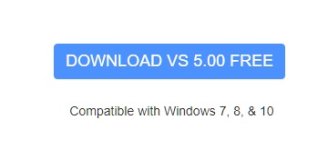@Andy Ful - FYI, here's a snippet from Dan re: incorporating Smartscreen into VS. I thought you might know the answer to his question.
"Anyway, if the efficacy is around 99% we would at least want to implement this feature into AutoPilot, and possibly have an option to automatically allow SS safe items for the other modes, especially if the efficacy is closer to 99.99999%. I just started thinking about this feature a week or so ago, so I am not sure exactly what the final implementation will look like... which is why I am asking for your guys thoughts and opinions.
If anyone knows if SS's efficacy is 99% or closer to 99.99999%, please let me know!"
I do not know the test which properly measured the efficacy of SS.
SS supports only some file types: BAT, CMD, COM, CPL, DLL, EXE, JSE, MSI, OCX, PIF, SCR, and VBE.
So, the efficacy can be measured only for these files.
Any good AV signatures + forced SS are better than the best AV.
Forced SS alone is better than the best AV for never-seen or 0-day malware, and probably better than average AV, for
widespread and prevalent malware.
SS may allow some Adware or PUPs if they are legally bundled with the popular applications.
Windows native implementation of SS is not the forced SS, so its efficacy can depend on the way the file was downloaded to hard disk.
In my opinion, If VoodooShield works alongside the standard AV based on signatures, then forced SS is a very good idea.
Dan is wrong when thinking that Windows native SS could block the VoodooShield update. Any update made by VoodooShield does not attach MOTW. So, it will be ignored by SS. But, blocking updates is possible with forced SS.
Anyway, SS has acceptable amount of false positives only for application installers. The application executables (after installation) does not have MOTW attached and SS normally ignores them. With forced
real-time SS they will be often just false positives. So, forced real-time SS should allow by default the files in Windows and Program Files folders (and maybe some others too).



